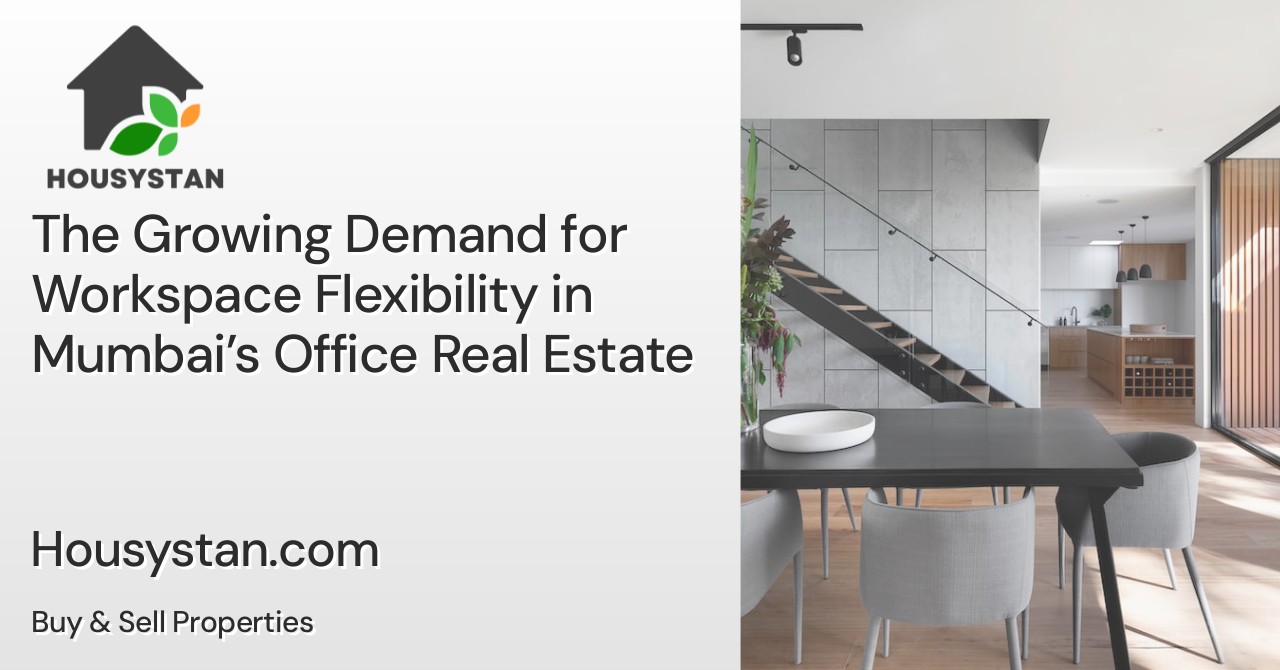The Growing Demand for Workspace Flexibility in Mumbai’s Office Real Estate
Read latest blogs and articles from Housystan

The Information mentioned here was last updated on:
29/1/2026The demand for workspace flexibility in Mumbai’s office real estate market is witnessing unprecedented growth, driven by shifting business dynamics and evolving workforce preferences. As one of India’s leading commercial hubs, Mumbai offers a unique blend of opportunities for enterprises, startups, and professionals seeking adaptable office environments. This trend is particularly evident in the city’s prime business districts such as Bandra Kurla Complex, Lower Parel, Andheri, and Powai, where organizations are increasingly prioritizing agility and efficiency in their workspace strategies.
Mumbai’s diverse economic landscape has accelerated the adoption of flexible office solutions, including coworking spaces, managed offices, and hybrid work models. Companies are moving away from long-term leases towards scalable options that allow them to adjust their footprint as business needs change. This shift enables businesses to optimize costs, enhance productivity, and foster a collaborative work culture without being tied down by traditional office contracts.
Flexible workspaces in Mumbai cater to a wide range of sectors, from finance and technology to media and creative industries. These modern offices are equipped with state-of-the-art amenities, advanced connectivity, and ergonomic designs, ensuring a seamless work experience for teams of all sizes. Furthermore, the city’s robust infrastructure and strategic location make it an attractive destination for organizations looking to establish or expand their operations within India’s thriving commercial landscape.
- Verified Tenants/Buyers
- Unlimited Property Listing
- Zero subscription/charges fee
The rise of remote and hybrid work has also contributed to the growing popularity of flexible offices in Mumbai. Businesses are seeking spaces that support a healthy work-life balance, offer easy access to transportation, and provide networking opportunities with like-minded professionals. As a result, property developers and workspace providers are investing heavily in innovative designs and sustainable solutions to meet the demands of modern occupants.
Choosing a flexible workspace in Mumbai not only enhances operational agility but also positions businesses at the heart of innovation and growth. Whether you are an entrepreneur, a growing startup, or an established company, leveraging the advantages of Mumbai’s flexible office real estate market can drive long-term success in a competitive environment.